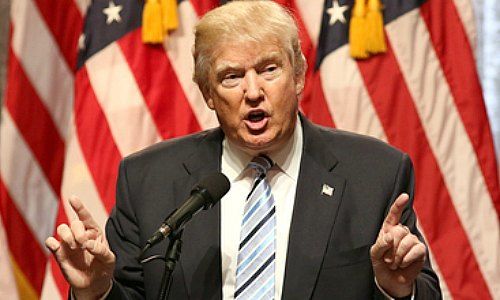Currency interventions by the Swiss National Bank are straining the nerves of many. What's worse, Switzerland is running the risk of being brandished a currency manipulator by the U.S.
The Swiss National Bank (SNB) in recent weeks has repeatedly intervened on the currency market to prevent the Swiss franc from rising even more against the currencies of Switzerland's most important trading partners (euro and dollar).
The interventions are further widening the huge central bank balance and may yet get the SNB into hot water from an unexpected side: U.S. President Donald Trump, who currently is slugging it off with another tiny European country – Denmark – hasn't been slow to accuse other nations of manipulating their currencies to the detriment of the U.S.
Two Criteria Have Been Met
«Switzerland is on its way to fulfil all the three U.S. criteria for currency manipulations,» said Alexander Koch at the economic research unit of Raiffeisen Switzerland.
As of now, two of the three criteria are met: the surplus of Switzerland's trade balance as well as the current account balance are above the threshold set by the U.S. Department of Finance.
Under a Watchful Eye
The only criteria left is a measurement of the sight deposits at the SNB. The deposits, which are an indicator of central bank interventions on the currency market, increased by about 10 billion francs over the past four weeks and are equivalent to almost 1.5 percent of GDP – not that far below the 2 percent threshold set by the U.S.
The U.S. government in November will look at the watch list of potential currency manipulators and the analysts will likely look closely at the dealings of the Swiss, having only just escaped from this specific risk list.
Big Risk for the Economy
The attention surrounding the watch list isn't without merit, because U.S. reserves it's right to exclude any country from public procurement if it doesn't agree to stop the activity deemed detrimental to the U.S. economy.
In early August, the U.S. fingered China as a currency manipulator and thus caused a furor in the middle of the tense stand-off between the two countries.
A Sensitive Issue
The questionmark over currency interventions is a sensitive issue for the SNB directors as well. They have always said they saw fit to intervene in the market whenever there was a risk of a significant appreciation of the franc, which in turn weighs heavily on exports. As such, interventions like the SNB's are nothing new. Numerous countries in the past resorted to measures to weaken their currency, rendering goods produced in the respective country cheaper to acquire from abroad.
In Switzerland, suffering from the relatively swift appreciation against the euro, the public's gaze has shifted from the fight against inflation (the official mandate of the SNB) to the fight against an appreciation of the currency.
Political Influenee
The effect that negative rates had on the banking industry, and still more so on the balance of the SNB put the institution in the spotilight and made the bank face a stiff breeze in Bern, the country's capital. Should the U.S. also start meddling, the SNB would face a tricky situation and make its business more complicated, as Koch noted – with the central bank independence in question.



































